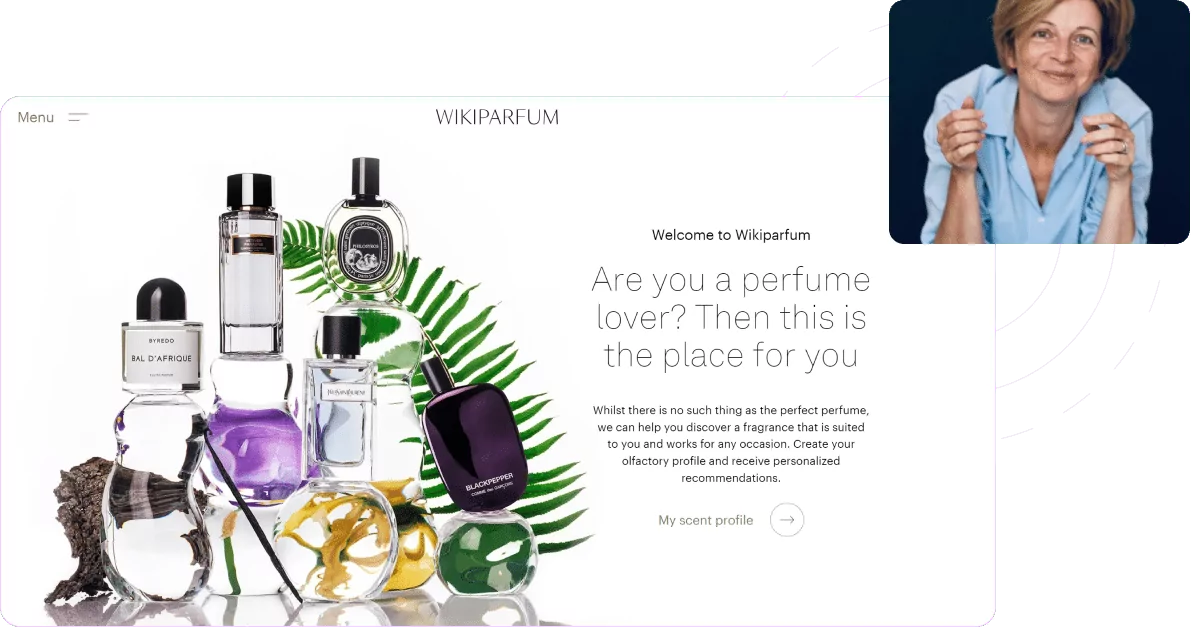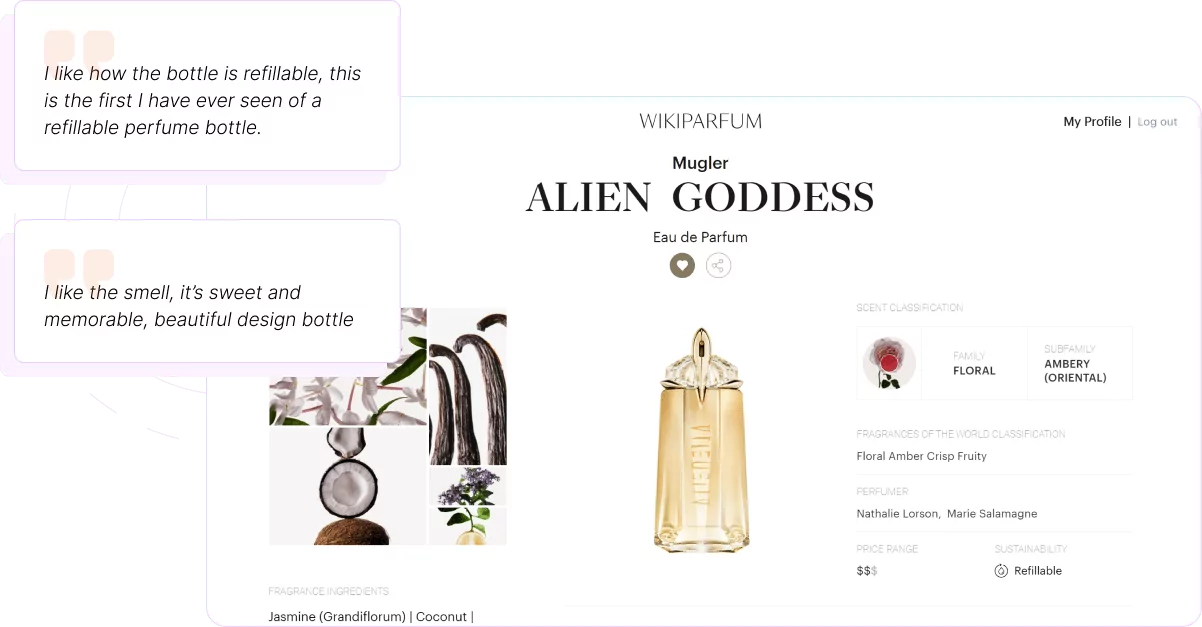Revuze has created the world’s largest data base of customer preferences on over 1 million products, based on analysis of verified customers reviews on the major retail websites.

That’s exactly what Camila Tomas, the Vice President of Innovation and Technology at PUIG, set out to do. Her career in the fragrance industry spans decades and she and the PUIG team are known for disrupting the fragrance industry. Under the PUIG umbrella she developed Wikiparfum, an algorithm that creates a unique scent profile for consumers for all fragrances, including competitors. We sat down with her to discuss her unique use case.
In this case, Wikiparfum is a technology solution for an entire product category: fragrances. Wikiparfum is the leading algorithm powering the most prominent online fragrance retailers in the USA, LatAm, Europe, the Middle East and China. It collects consumer data to provide the ultimate fragrance recommendation engine. Consumers select fragrances they already love and Wikiparfum’s engine provides recommendations of options that hit the same scent profile.



While Tomas’ ultimate goal is to use data to integrate trends from consumer sentiment analysis, she is also interested in other topics that may not be trending yet to ensure the algorithm stays ahead of the curve.
Sustainability for instance is a buzzword that everyone talks about. Many retailers like H&M make a point of indicating what percentage of the garment is recycled. It pops up in a variety of places. Tomas turned to Revuze to commission a special report to try to understand consumer sentiment around fragrance packaging and ingredients.
The consumer data painted an interesting picture. Brands that highlight that they are sustainable see a lift in sentiment. The sustainability discussion for instance peaked when Thierry Mugler launched its Alien Goddess fragrance line with the refillable bottles in August 2021.
Consumers also appreciate when fragrance products are vegan or cruelty free. They are looking for natural ingredients that are responsibly sourced.
Understanding the value of the information, Tomas integrated the data into Wikiparfum’s recommendation engine. This optimization is just another milestone on the journey to create the ultimate customer-centric experience.

